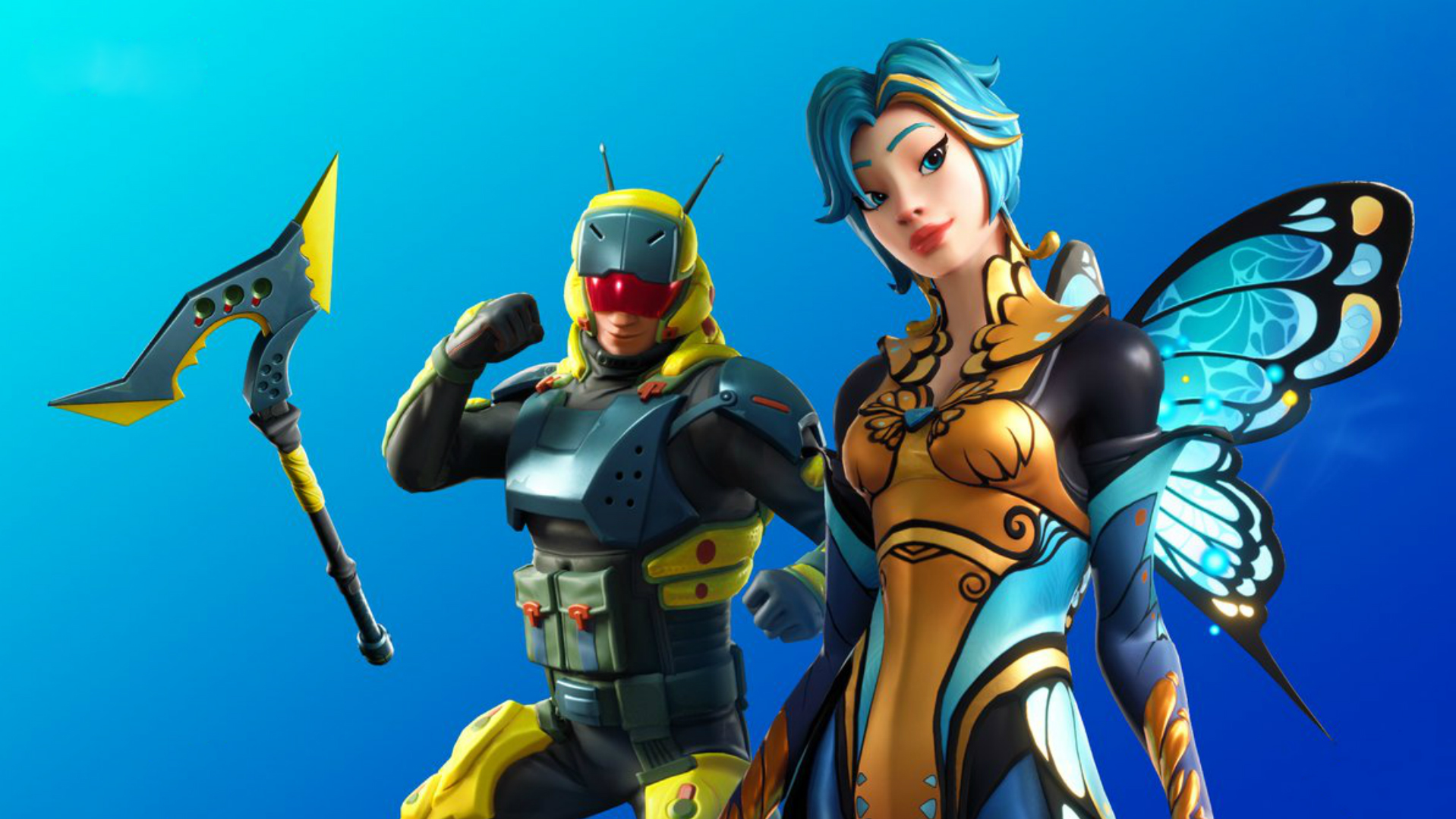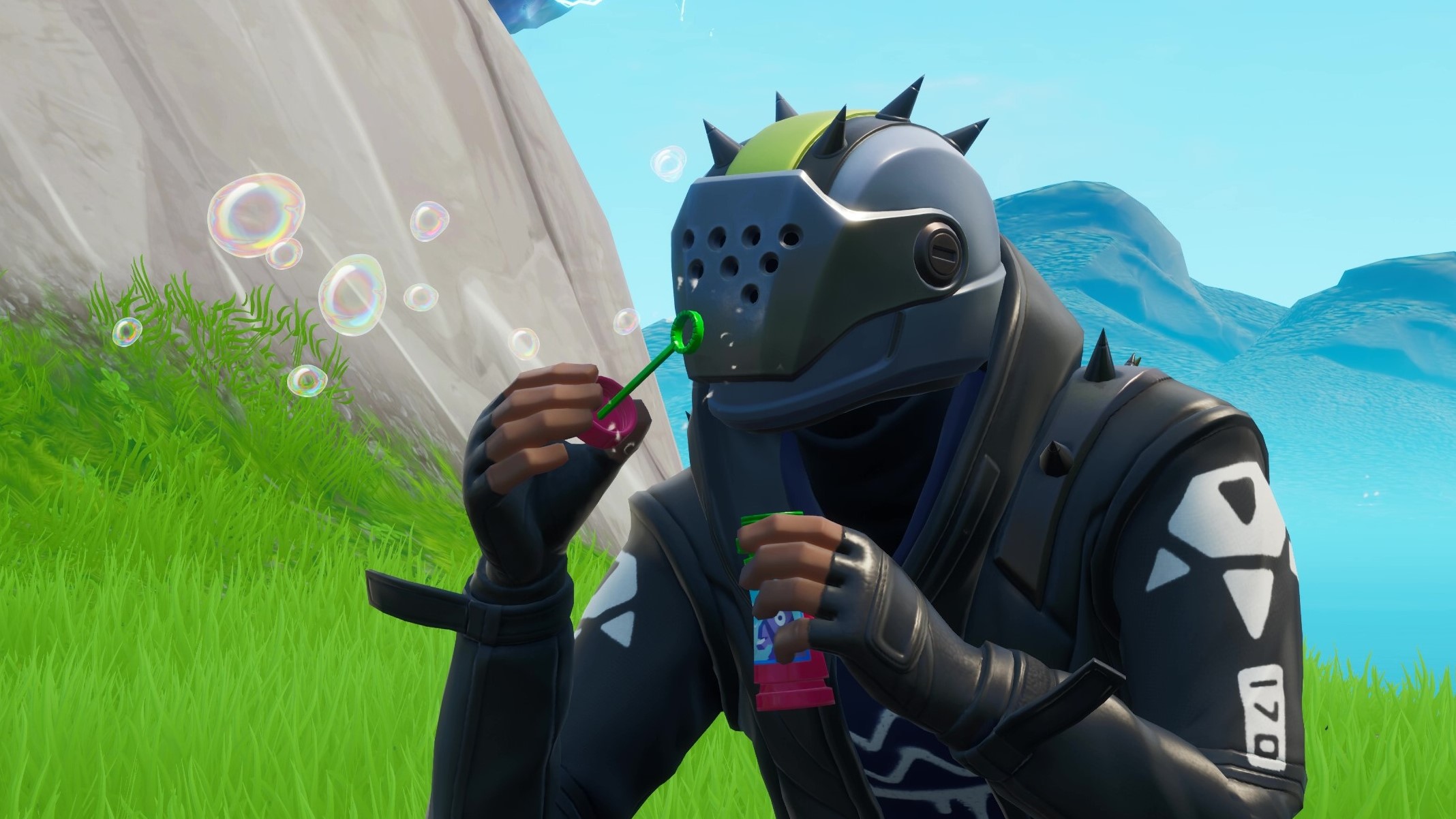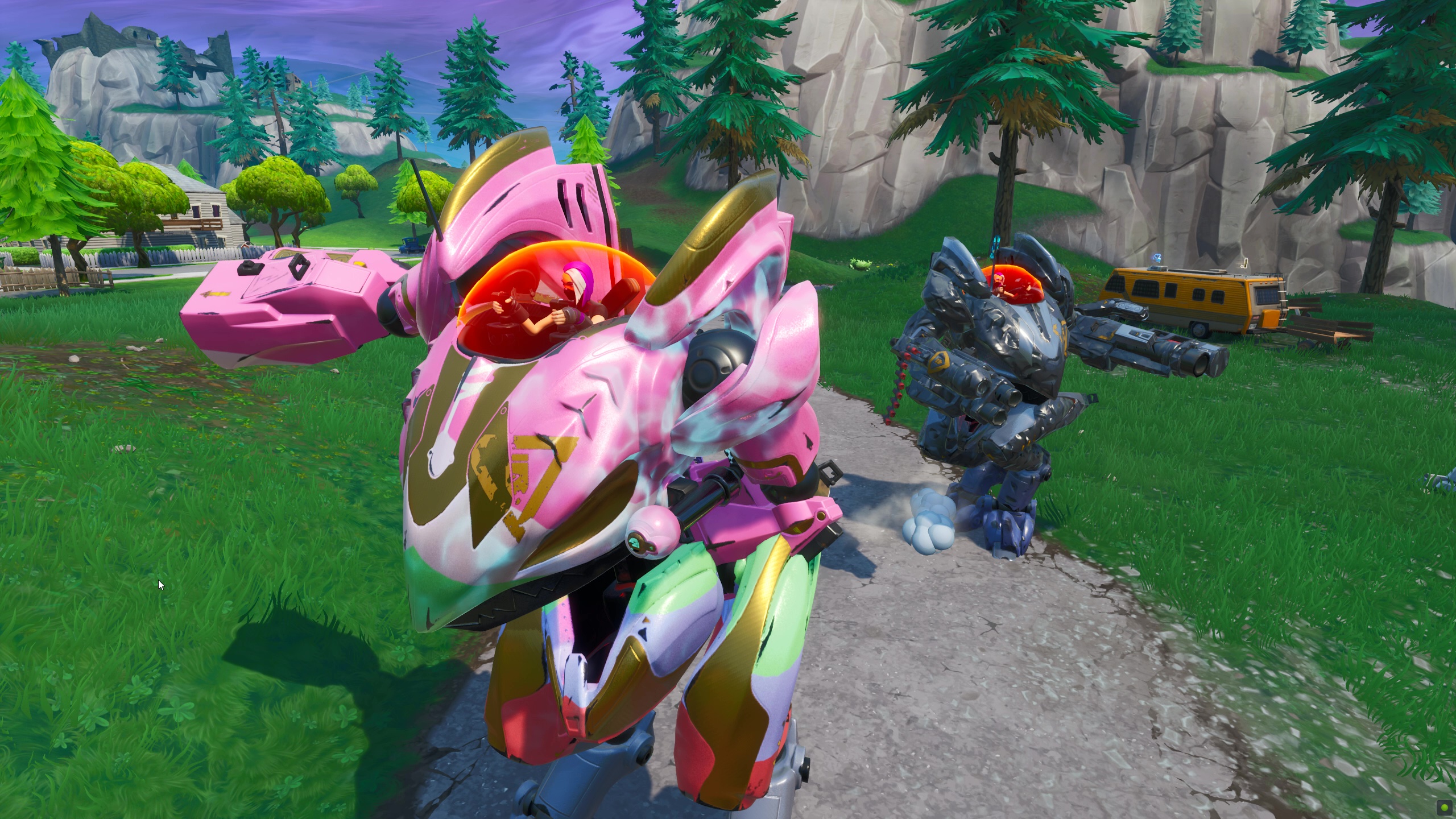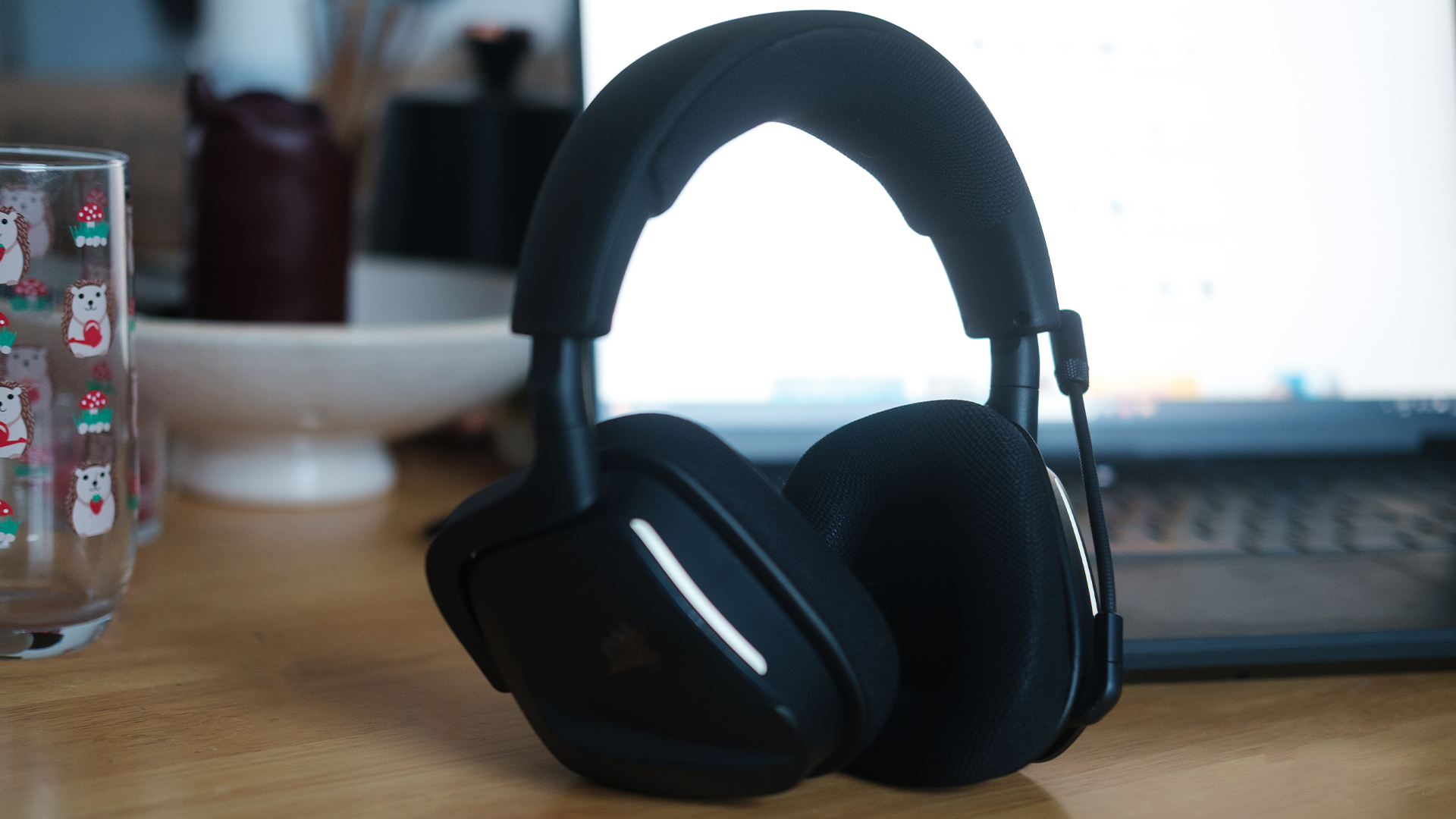How old should my kids be before I let them play Fortnite?
We talk to experts and psychologists about what playing Fortnite does to young brains.

We play games. Many of us started when we were kids, and we played for as long as our parents allowed (or as long as we could get away with). Now, though, some of us are parents, and if you are, you've likely been harangued about Fortnite.
Fortnite's notifications for invites and friend requests are also reminders that their friends are playing without them, keeping the game close, even when it's not running.
It's the game. It's free, it's colourful, it's immediate, intense, complex, rewarding, and every new season adds massive events and new features to explore. It's a good game! But as a parent, I've also found it has introduced a new tension into my household, and affected my attitude towards my children playing games. I'm not the only parent to experience this, of course. A visit to the UK parenting forum Mumsnet immediately surfaces threads like, "Does Fortnite turn your kid into an arsehole too?" and "F*#@ing Fortnite...ruining our lives." They describe their kids "turning into monsters" while playing, achieving lower grades.
I'm not quite so angry about Fortnite, but I've realised that how I feel about my kids playing games is a lot less laissez-faire than I expected. So I spoke with a psychiatrist and a researcher who study games to apply some science to the question: When should I let my kids play Fortnite?
Kids, games, and research
It's useful to remember that today's games are different than the ones we grew up with. They're no longer tied to the living room TV or office computer, which limited the time we could spend playing. On laptops and other platforms, they're pervasive and persistent: Fortnite shares items and progression between its PC, console and mobile versions.
Fortnite is also free, like so many other big games today, and it's also endless, designed to hold players in indefinite reward loops, and do everything it can to sell Battle Passes, costumes, and whatever else. And it's online, potentially exposing kids to the worst of internet behaviour.
So games are different now, and I wonder what all this is doing to our kids. The truth, which makes it difficult to put an age on when it's okay for kids to play Fortnite, is that psychologists don't really know. "I have not seen any research looking at the effects of playing those kinds of games," says research psychologist Dr. Rachel Kowert, who is research director of Take This, a charity that promotes mental health for gamers and the industry.
She's come across research around the design of loot boxes, which has generally found that they have the same psychological effects as gambling. "And there's research about instant gratification, and games really play on, 'Oh, you could have that if you just buy this one thing.' But I haven't seen any research on whether it has some kind of psychological effect on players themselves."
The biggest gaming news, reviews and hardware deals
Keep up to date with the most important stories and the best deals, as picked by the PC Gamer team.
Loot boxes are only one reflection of the power modern games have over your kids' time and attention. For Kourosh Dini, a psychiatrist and author of Video Game Play and Addiction: A Guide for Parents, games are among many other digital services that hammer notifications to their users. Fortnite's notifications for invites and friend requests are also reminders that their friends are playing without them, keeping the game close, even when it's not running. It's this aspect of Fortnite which has provided many flashpoints in my household.

"There are so many things that are asking for our attention, and that goes with a cost structure where the first bit is free and if you want something better you've got to pay for it. Between attention and our sense of agency, we have to monitor our ability to choose things without pressure," Dini says.
But there's little research into all this, and that's because a great deal of studies around games is focused on the effects of videogame violence.
This, after all, has been the banner Problem With Videogames since forever, and most parents forums at some point worry about the effect of Fortnite's gun-based violence on their kids.
"There's tonnes of work on videogames and violence, and there's a non-existent link," says Kowert. So that's good news. But because belief persists that there is a link, more money is available to put into projects that study links between games and violence, even if most of them, Kowert says, aim to debunk them.
"Maybe if we can get some funding for something besides violence, we might find other real problems with games! But violence is where the money is because it's where the fear-mongering is."

What's new with the latest Fortnite season
Patch notes for every Fortnite update
The best Fortnite creative codes
The optimal Fortnite settings
Best places to land on the Fortnite map
Tips on using the Fortnite replay mode
Our favorite Fortnite skins
The best Fortnite toys
But parent forums aren't making up the woes they describe, and there are problems around games, even if they're unstudied. As a practising psychiatrist, Dini sees kids brought in by parents and he can tell they're playing too much. "They're not connecting with others, they're not going out, not interacting at dinnertime. Maybe they're having a hard time at school and their grades are dropping because they're not doing the work. And then there's a secondary problem, when a parent takes the game away from them and they're met with screams."
The problem isn't, Dini believes, games themselves.
"Every single time I've interviewed a kid, a teenager, or even someone in their 20s, who is stuck playing games and can't seem to find a way to sustain themselves and lead a meaningful and fulfilling life, the trouble almost every single time is something besides games."
Games are instead a reflection of other problems in their lives. Perhaps the kid has issues with socialising, and finds a life online that they can't in person. They might have issues of control, where games become a refuge from a topsy-turvy home life, or even an abusive one. Games might become a point of self-identity, or they might be a rare place where a kid feels a sense of mastery.
"It's not games that are the problem," agrees Kowert. "Games have been identified as providing emotional self-medication. They're a vehicle that different underlying problems are being funnelled through."
She says that only 0.2% of individuals use games in a way that's 'maladaptive' (though it's worth noting that studies of various vintages claim a range of numbers, with one suggesting eight percent of gamers exhibit "pathological patterns of play."

Making the call
I want my kids to be mature enough to understand when a game is selling to them.
The focus on negative aspects of games means their positive aspects are under-considered, such as their social nature and the skills they engender. "I really love Fortnite, and I cannot imagine my ability to multitask the way these children do when they play Fortnite," says Kowert.
So where does this leave the question of how old should a child be to play Fortnite? For UK industry ratings board PEGI, it's 12 and over, because of its "frequent scenes of mild violence." For the ESRB, it's Teen, or "generally suitable for 13 and up", for its "frequent gunfire, explosions, and cries of pain."
Personally, I think that feels about right. Not for the violence, but certainly for the other aspects. I want my kids to be mature enough to understand when a game is selling to them, and when compulsion to play is taking over from pleasure. I want them to be able to recognise when they're feeling socially uncomfortable and walk away from it. And I don't want them to see games as the only, or easiest, way to deal with problems in their lives.
I want Fortnite to be the positive thing it should be for my kids. And if that means being a bit of a tyrant about how they play it, that's just how parenting goes.

